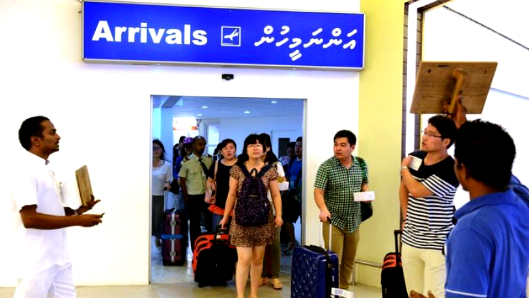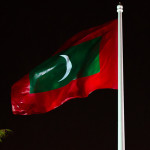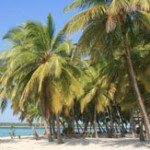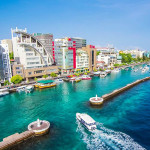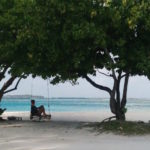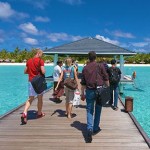The government of Maldives raised fear of a bomb plots in declaring an unprecedented nationwide state of emergency today, but insists that the honeymoon destination is safe for tourists.
“Today’s measures are a pre-emptive and precautionary action by the government in light of several significant security threats that have emerged in the last week,” Foreign Minister Dunya Maumoon said in a statement.
“The security of our resorts and islands is not under threat and we have received no evidence to suggest otherwise. The Maldives is safe for international visitors.”
President Abdulla Yameen, in declaring the 30-day state of emergency, said the security forces had seized dangerous weapons and explosives from two areas in the Maldives.
“The security forces believe some weapons and ammunitions are still missing, and that security forces have information that some individuals are planning to use these weapons and ammunition, which poses a serious threat to the people and to national security,” his decree read.
The move comes amidst heightened insecurity in the capital Malé. Vice President Ahmed Adeeb is detained on suspicion of links to an explosion on Yameen’s speedboat, and is now facing impeachment.
The government, despite the FBI finding no evidence of an explosive device, insists the explosion was caused by a bomb targeting the president.
On Saturday, the security forces seized a large cache of weapons from a reef, which included firearms that had gone missing from the state armory. On Monday, the army said it had defused a bomb found near the presidential palace.
Meanwhile, the main opposition Maldivian Democratic Party had planned a mass protest for November 6, calling for the release of jailed former President Mohamed Nasheed. Protests are banned in the 30 day period.
The streets of Malé are quiet, but soldiers are patrolling the water and power plants and petrol sheds in the city.
Following the state of emergency, the Australian foreign ministry has advised travelers to “exercise a high degree of caution in Male due to the possibility of civil unrest and large protests.”
Terrorist attacks could occur in the Maldives, it added, including against Maldivian institutions and tourist locations frequented by westerners.
The UK foreign office has also issued a similar warning.
Newly appointed tourism minister Moosa Zameer said in a statement: “The government assures the tourism and travel trade that all tourism related businesses will be operating as usual and that the situation in the Maldives remains stable. The state of emergency does not force any restrictions on traveling to the Maldives and within the Maldives.”
In May, following former president Nasheed’s imprisonment, the parliament of the European Union asked all of its members to issue travel warnings on the Maldives regarding the violation of human rights in the island nation.

